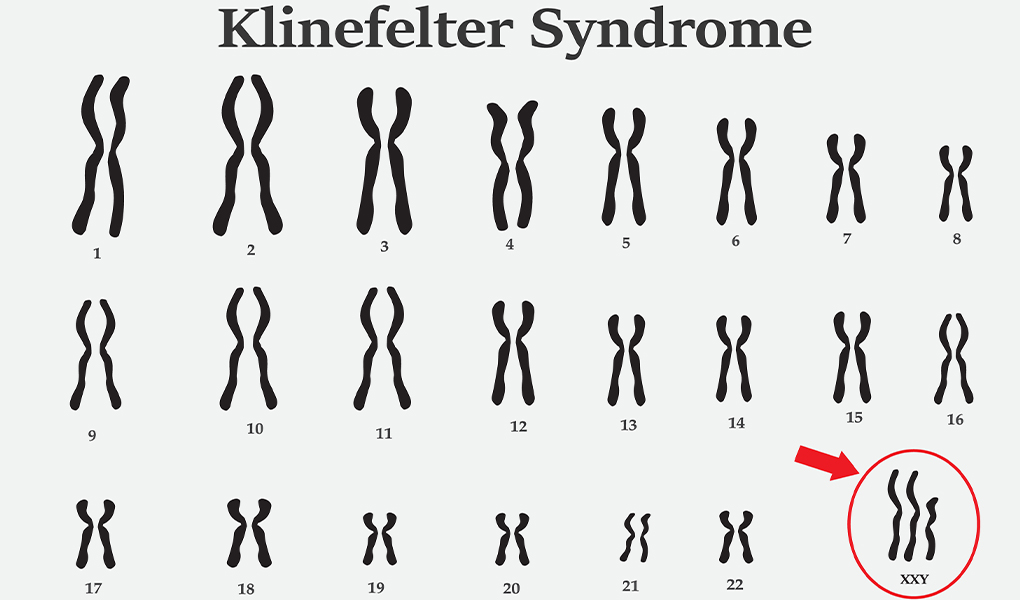Follow Us!
Patient stories, informative videos and much more on our social media accounts

Klinefelter syndrome is one of the most common genetic causes of male infertility and hormonal imbalance. Despite its relatively high prevalence, many men with Klinefelter syndrome remain undiagnosed until adolescence or adulthood, often during fertility evaluations.
This condition affects physical development, hormonal balance, and reproductive function to varying degrees. While some individuals experience noticeable symptoms early in life, others may live for years without clear signs. Understanding Klinefelter syndrome is crucial for early diagnosis, appropriate treatment, and fertility planning.
To understand Klinefelter syndrome, it is helpful to briefly review basic genetic principles. Human cells contain 46 chromosomes, arranged in 23 pairs. One of these pairs determines biological sex and is known as the sex chromosomes.
Klinefelter syndrome occurs when a male is born with one or more extra X chromosomes, most commonly resulting in a 47,XXY karyotype. This additional genetic material interferes with normal testicular development and hormone production.
The syndrome was first described in 1942 by Dr. Harry Klinefelter, who identified a group of men with small testes, infertility, gynecomastia, and elevated follicle-stimulating hormone (FSH) levels.
Klinefelter syndrome occurs in approximately 1 in every 500–600 male births, making it far more common than generally perceived.
The presence of an extra X chromosome primarily affects the testes. Testicular tissue may not develop fully, leading to:
The severity of symptoms varies widely. Some men have mild hormonal changes, while others experience more pronounced physical, reproductive, and cognitive effects.
Some signs may be subtle and easily overlooked:
As puberty approaches, symptoms often become more noticeable:
In adult men, reproductive and hormonal issues are most prominent:
Most men with Klinefelter syndrome have normal intelligence, although mild learning difficulties may occur.
Klinefelter syndrome is caused by a random chromosomal error during the formation of reproductive cells. It is not inherited in the traditional sense and is not caused by parental behavior, lifestyle, or environmental exposure.
The only known factor associated with a slightly increased risk is advanced maternal age, although the overall risk remains low.
Klinefelter syndrome is classified into three main types based on chromosomal pattern:
Men with Klinefelter syndrome have an increased risk of developing certain medical conditions, including:
Many of these risks are linked to low testosterone levels and may be reduced with appropriate treatment.
Diagnosis typically involves a combination of clinical evaluation and laboratory testing.
In some cases, Klinefelter syndrome is diagnosed prenatally through:
Klinefelter syndrome cannot be cured, but early and appropriate treatment can significantly improve quality of life.
Yes. It affects approximately 1 in 500–600 males.
Some men can father children with assisted reproductive techniques such as IVF and ICSI.
No. Testosterone therapy improves physical symptoms but does not restore sperm production.
No. It is caused by a random chromosomal error.
Yes. Many men are diagnosed during infertility evaluations in adulthood.
You can contact us at 444 39 49 for all your questions.
Let us call you as soon as possible regarding the issues you want to consult.


